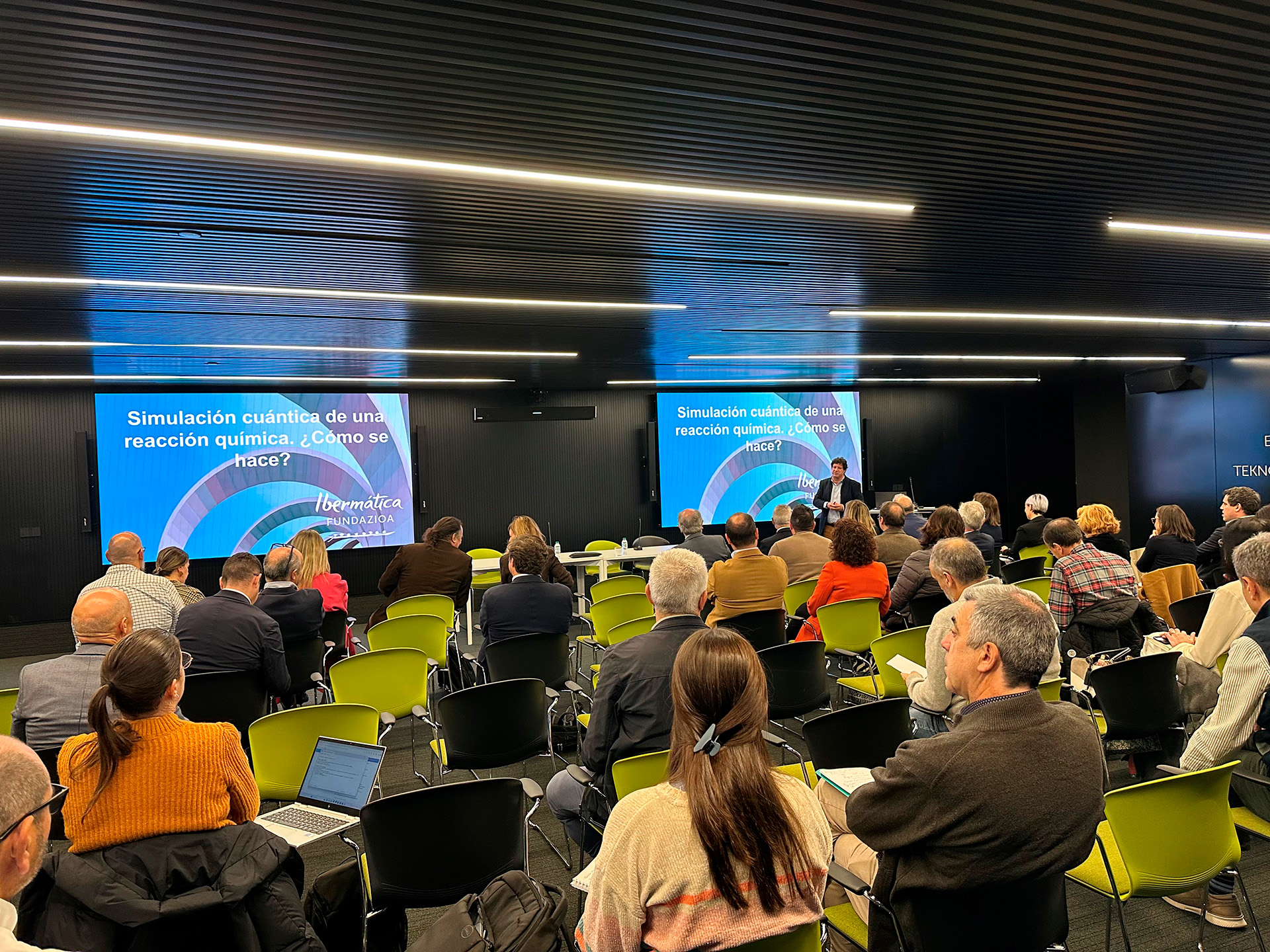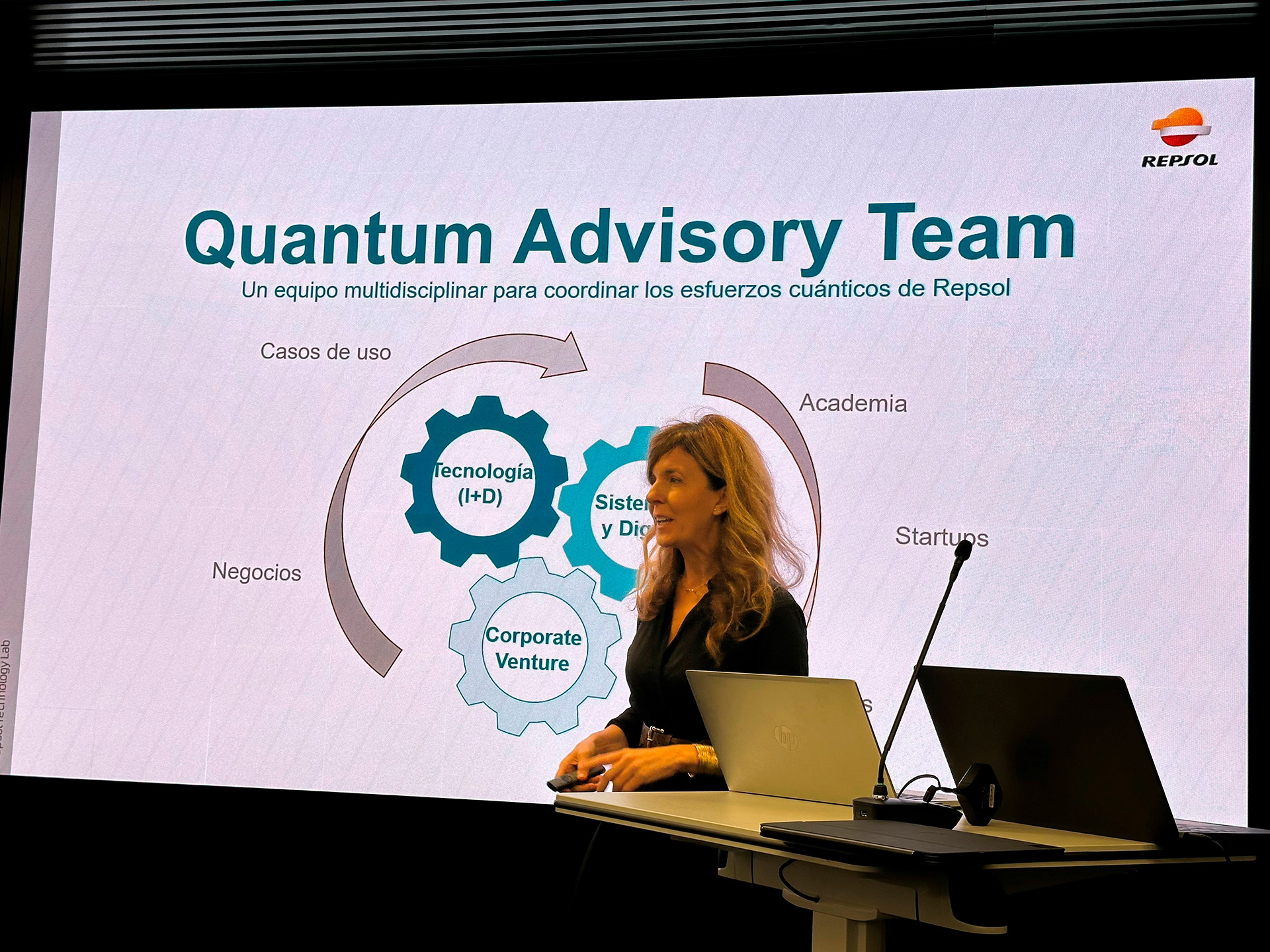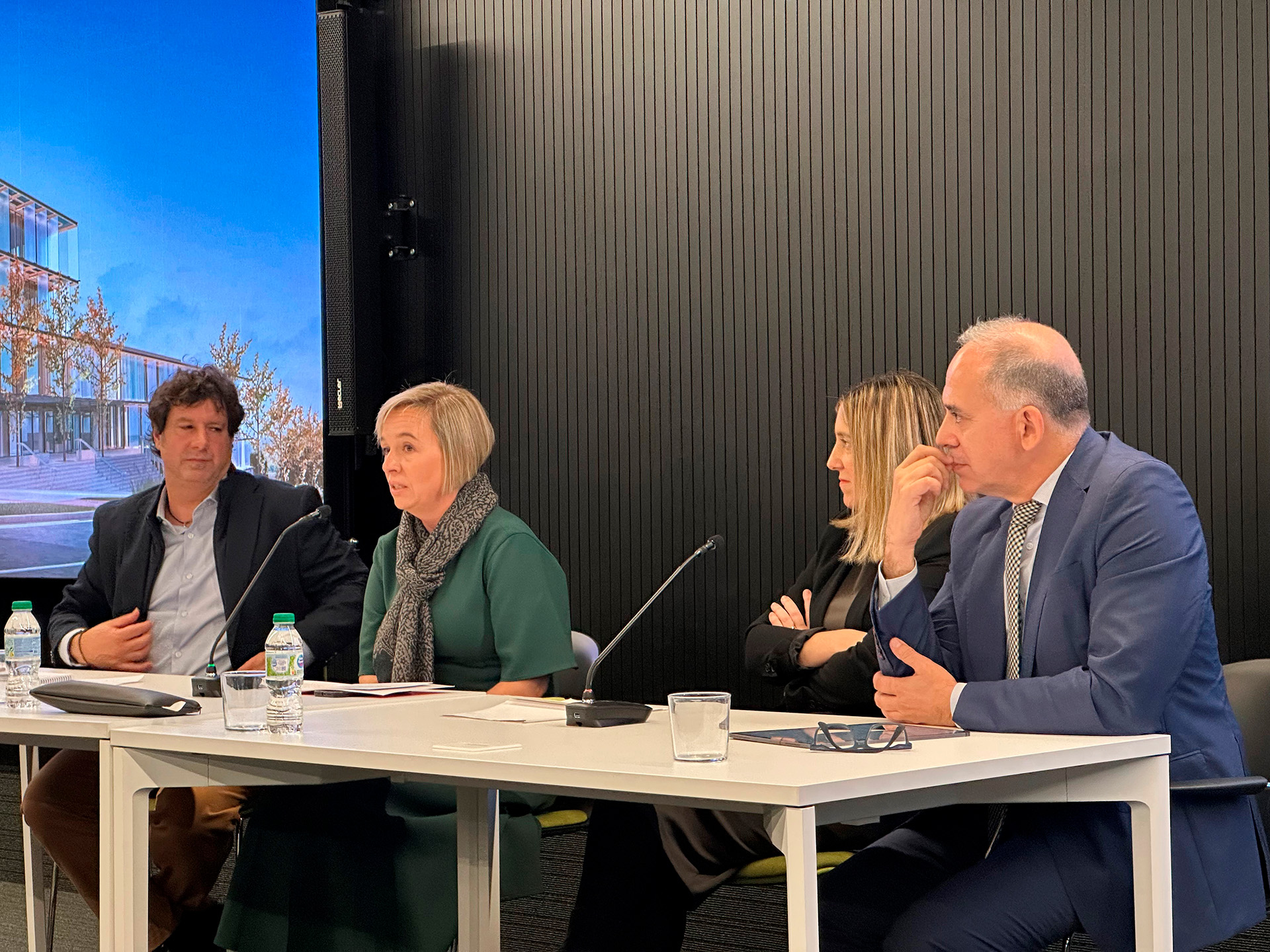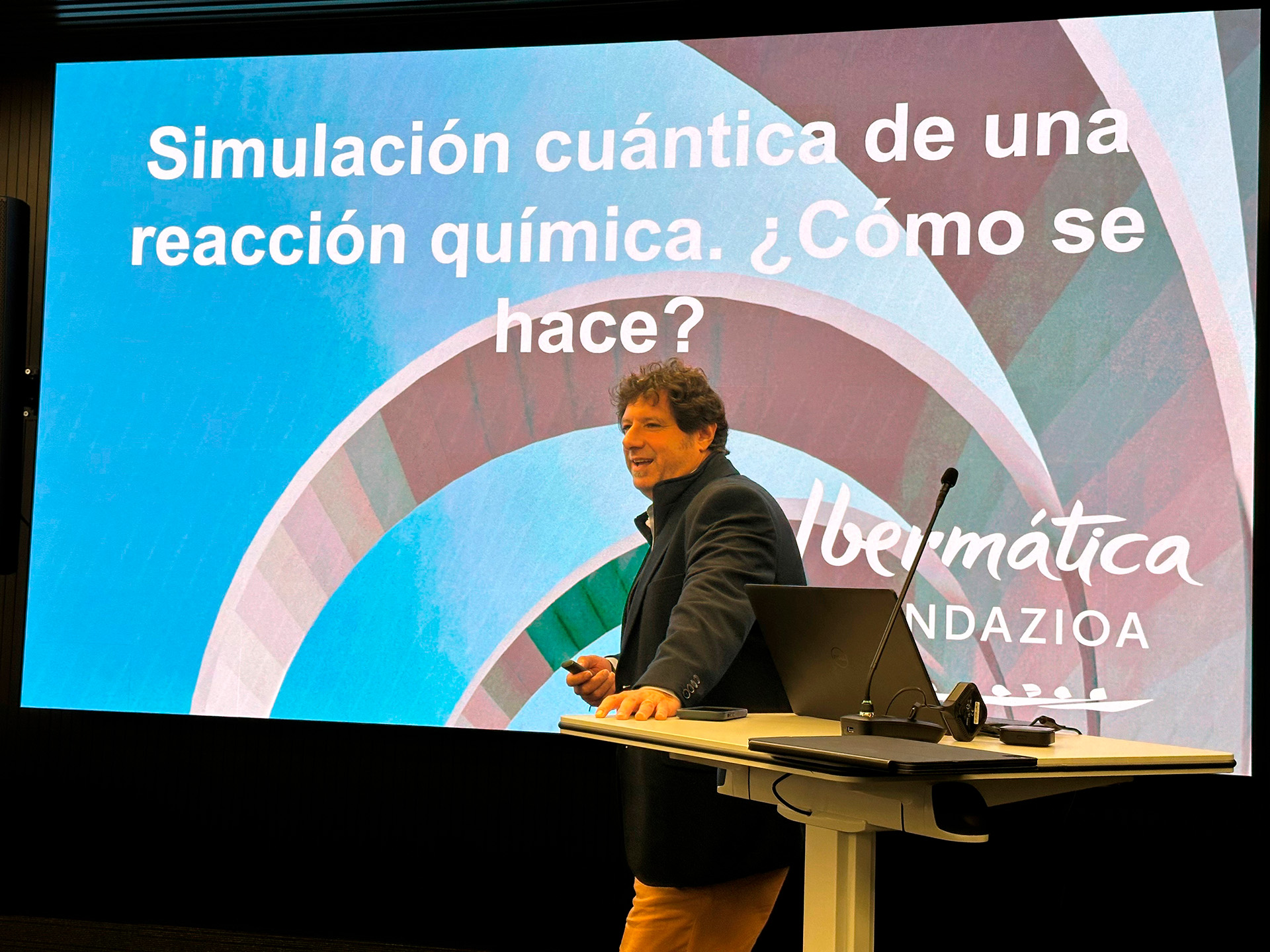November 29, 2024
Accelerating the transition to green hydrogen through quantum computing
Ibermática Fundazioa and the Basque Hydrogen Corridor have recently organised an event on the potential of quantum computing to speed up the energy transition.
The conference, titled ‘Quantum computing and hydrogen: the future of green energy’ and organised by Ibermática Fundazioa and the Basque Hydrogen Corridor, took place on 25 November. The event focused on the potential of quantum computing to accelerate the development of renewable technology, specifically hydrogen-based solutions.

During the opening of the conference, the Deputy Minister of Universities and Research in the Basque Country, Adolfo Morais, presented the ‘Basque, BasQ’ initiative, led by the Basque Department for Education, in collaboration with the provincial councils of Araba, Biscay and Gipuzkoa. Its purpose is to position the Basque Country as one of the world’s leading quantum hubs by fostering a research, talent and innovation ecosystem for quantum technology.
For his part, the President of the Basque Hydrogen Corridor, José Ignacio Zudaire, explained how the transition to green hydrogen is a priority for the region, as well as how quantum computing has the potential to play a crucial role in this process.
Joseba Inchaurraga, President of Ibermática Fundazioa, highlighted the foundation’s commitment to reducing the digital divide as well as driving social progress through research, development and innovation. Since 2018, one of Ibermática Fundazioa’s key R&D areas has been quantum computing. This has seen it undertake a series of important quantum projects.
Throughout the event, Ricardo Enríquez, Head of Quantum Computing at Repsol, shared his knowledge on the role of quantum computing in the hydrogen value chain, explaining how this technology has the potential to transform processes and change the way we approach the challenges faced by the energy industry. Emilia Martínez Serrano, Director of Optimisation, Industrial Assets, E&P and Tech at Repsol, also gave her vision on the roll-out and use of quantum technology at Repsol. This saw her highlight the importance of R&D in this area as well as the need for hybrid technology to find the best solution in each case.

Aitor Moreno Fernández de Leceta, Head of Quantum Computing at Ibermática Fundazioa, presented the R&D strategy the foundation has had in place since 2018, and outlined its current optimisation, simulation and quantum machine learning projects. In addition to undertaking research, he noted that Ibermática Fundazioa is carrying out quantum projects for a number of its clients.
Leire Colomo Zulaika, Innovation and Technology Director at AMPO Poyam Valves, then spoke about the opportunities quantum computing can offer in terms of simulations for fluids and structures involving existing solutions.
Miguel Palacio Camino, Lead for Renewable Transport and Fuel at Petronor Innovation, and Director-Coordinator of H2Integra explained how, within the context of this project, quantum computing has the potential to increase the efficiency of optimisation models, which are essential in guaranteeing a reliable energy supply.

Artiz Arrizabalaga, Head of Process Engineering at H2SITE, described the complex simulation processes required for the purification and separation of hydrogen, and how quantum simulation can play a crucial role in this. Lastly, Alfonso Corbella Vázquez, Director of the IPCEI ‘Hydrogen Business & Investment Development’ at Sener, presented a number of use cases that clearly show the advantages offered by quantum simulation for modelling and accelerating R&D involving the design of new products.
The event also involved a round-table debate moderated by Aitor Moreno Fernández de Leceta. During the discussion, Ainara Basurko (Minister for Economic Development in the Biscay Provincial Council), Ane Insausti (Minister for Economic Development and Strategic Projects) and Adolfo Morais (Regional Deputy Minister for Universities and Research), explained the potential of this technology as well as the strategies pursued by their departments. These include the Provincial Council of Biscay’s Biqain strategy and the Gipuzkoa Quantum Hub, both part of Basque Quantum. All those involved stressed the importance of fostering collaboration in the region in order to turn it into one of the world’s leading quantum hubs.

We support your projects
We are here for you, to advise you personally and offer you the product you need.